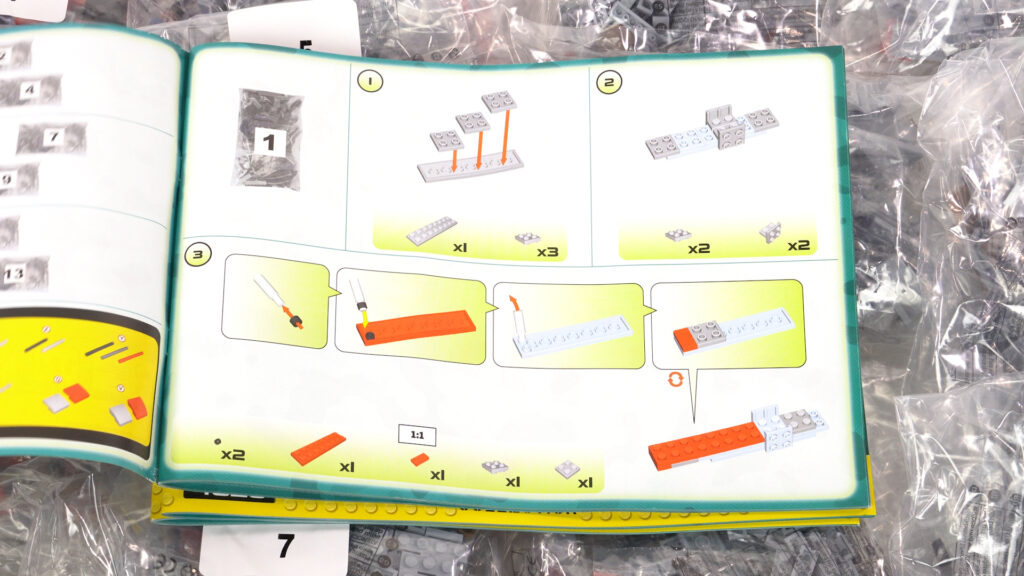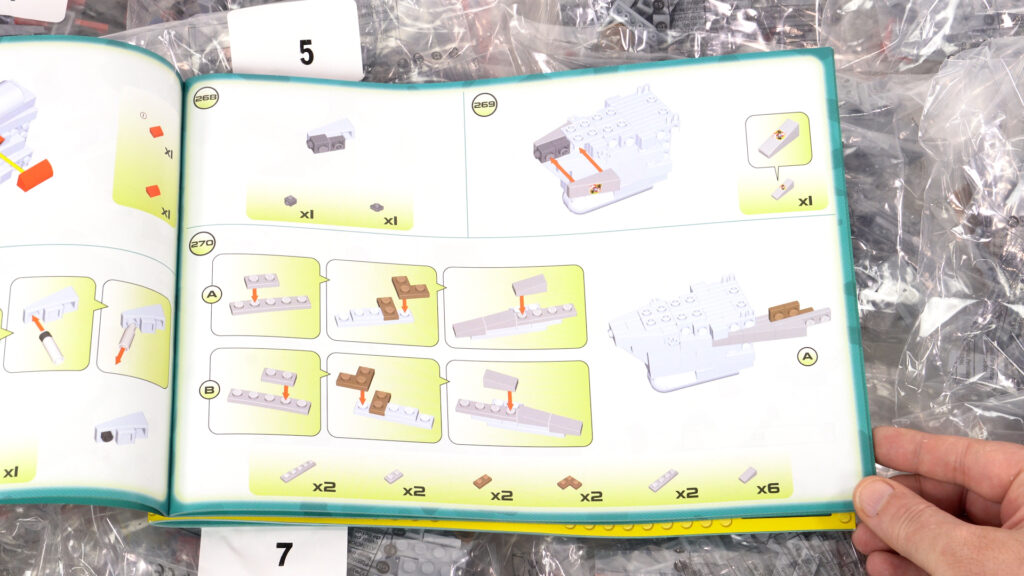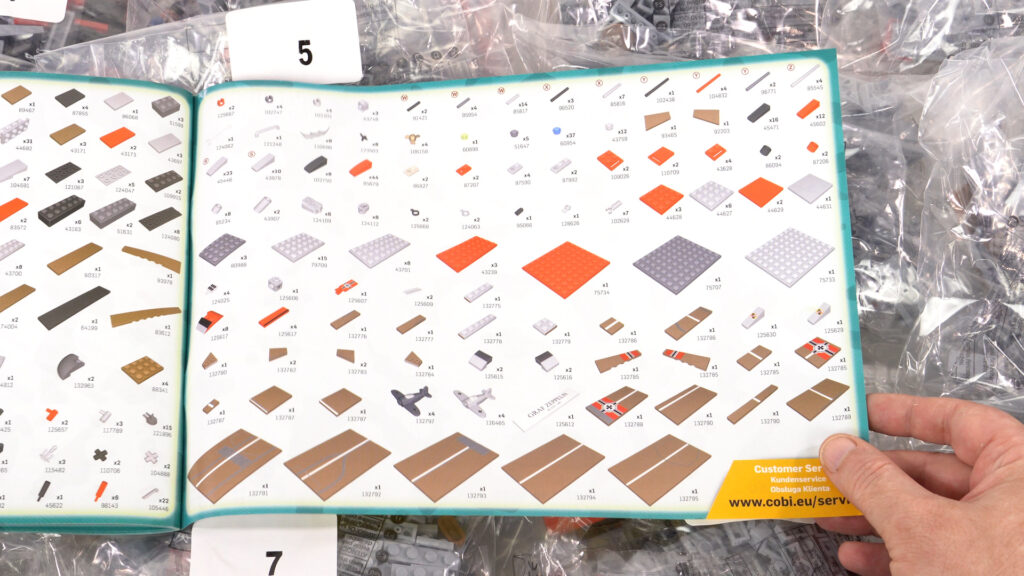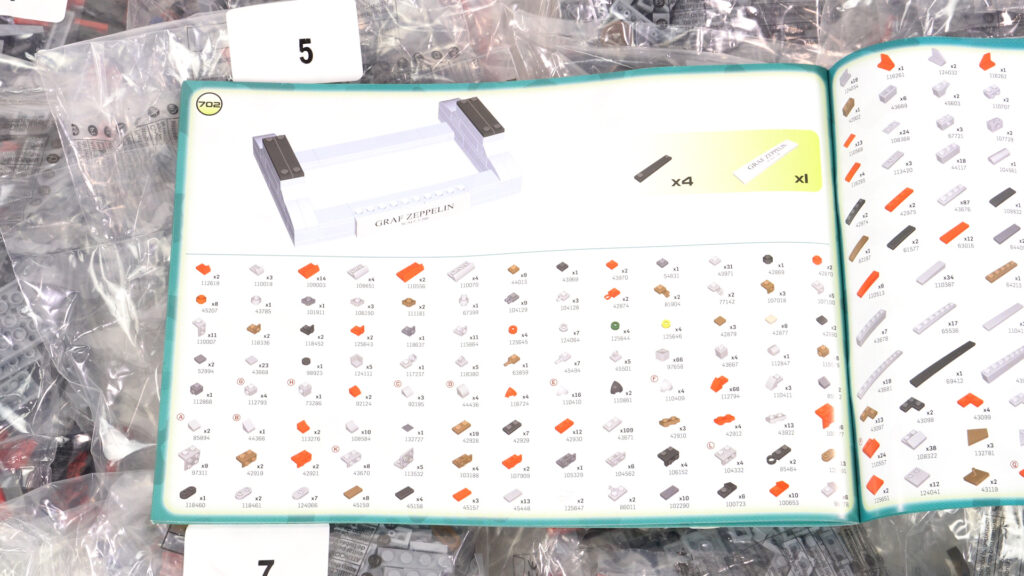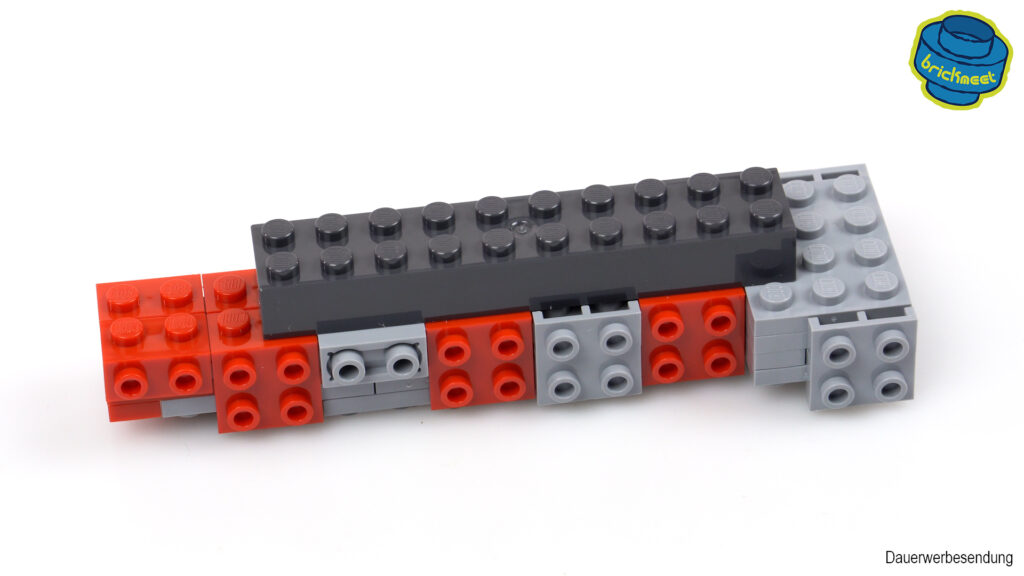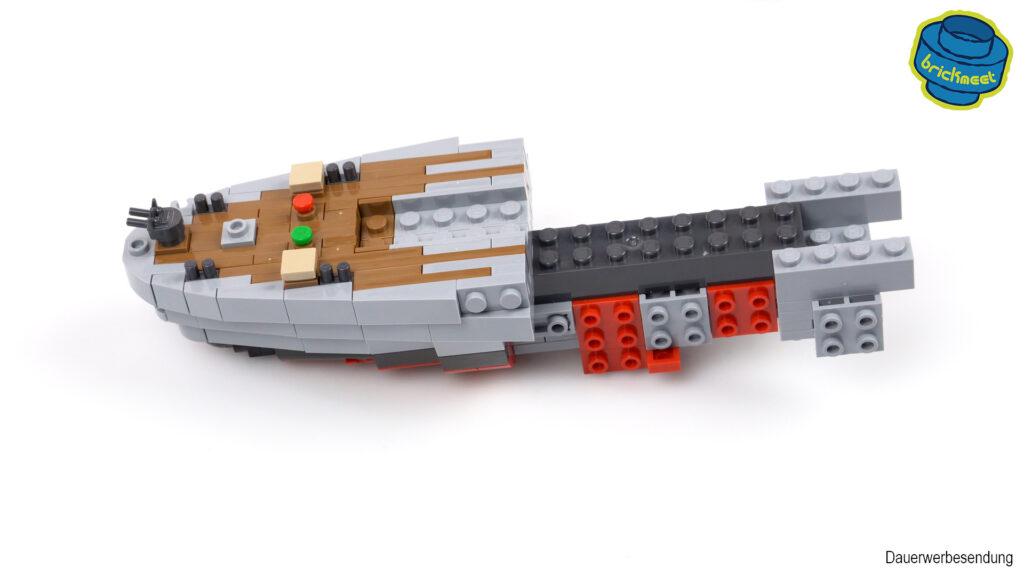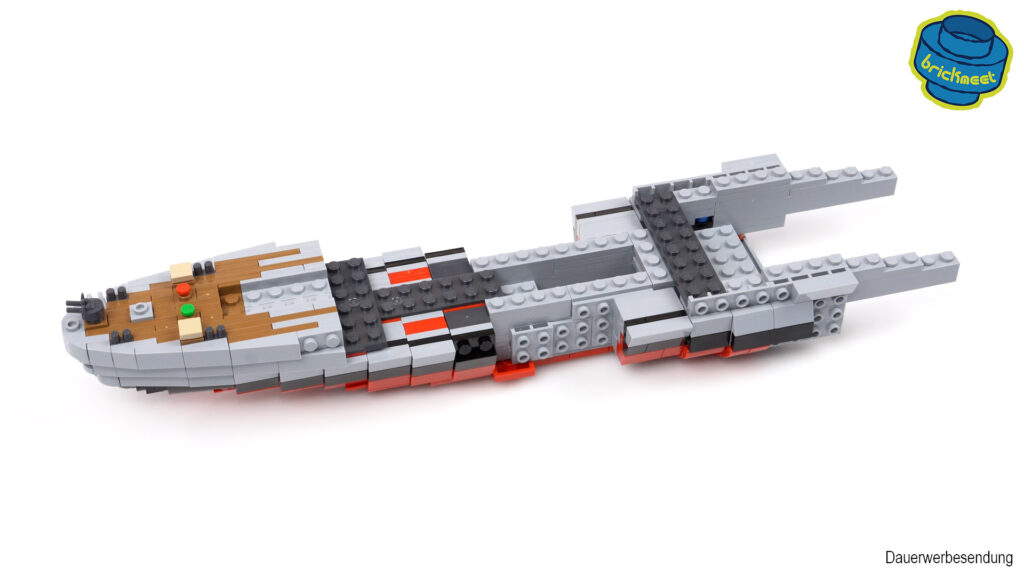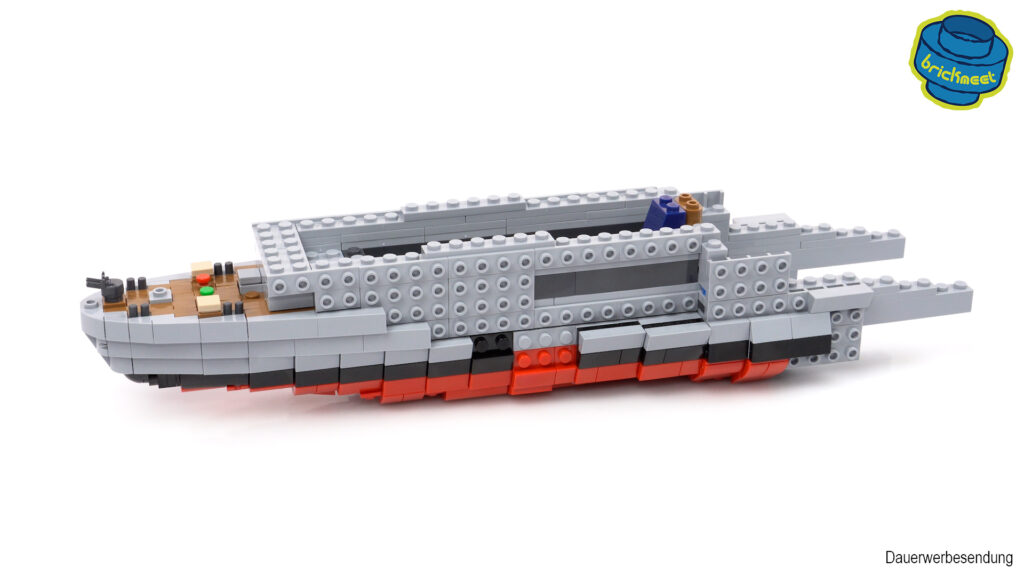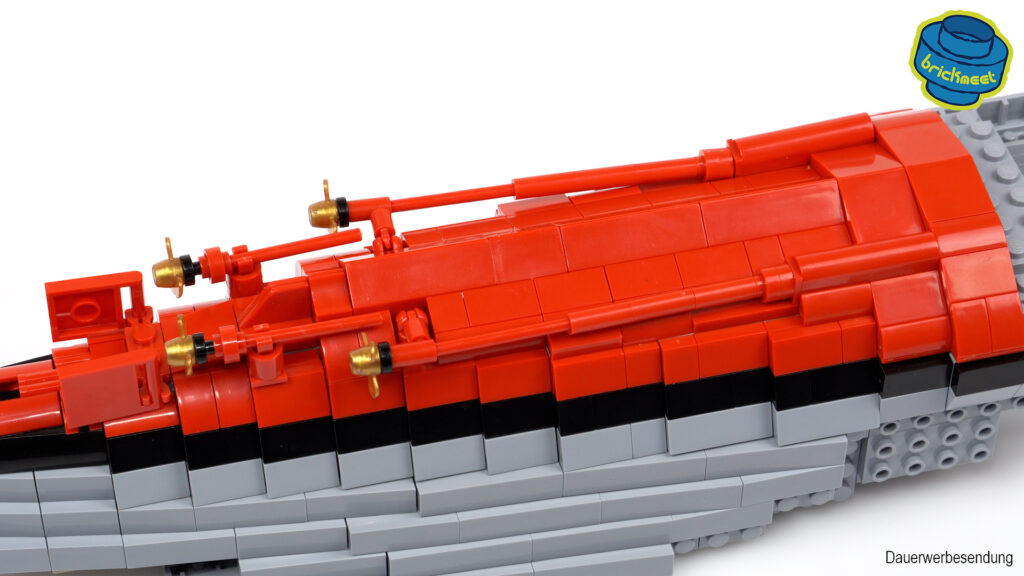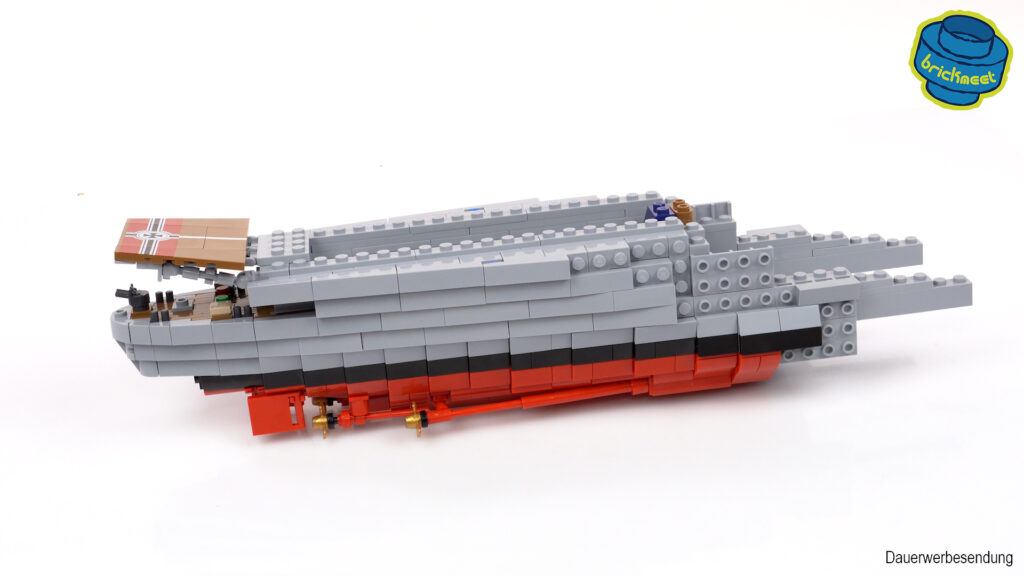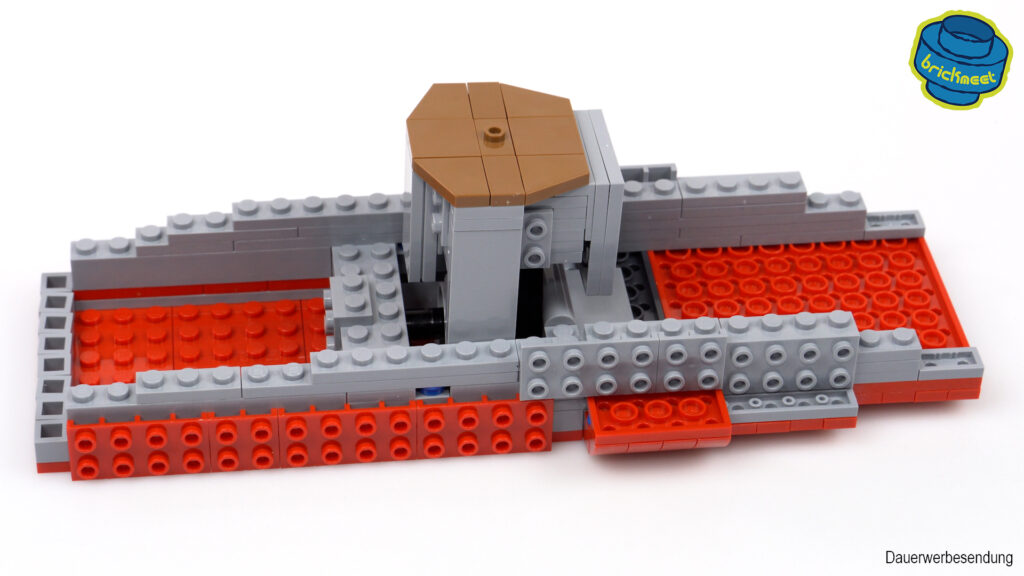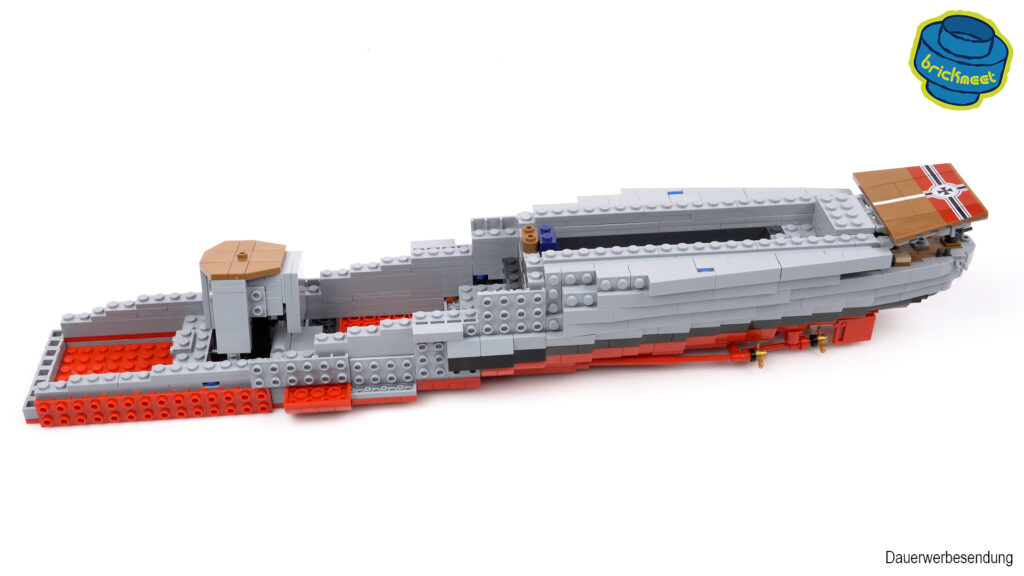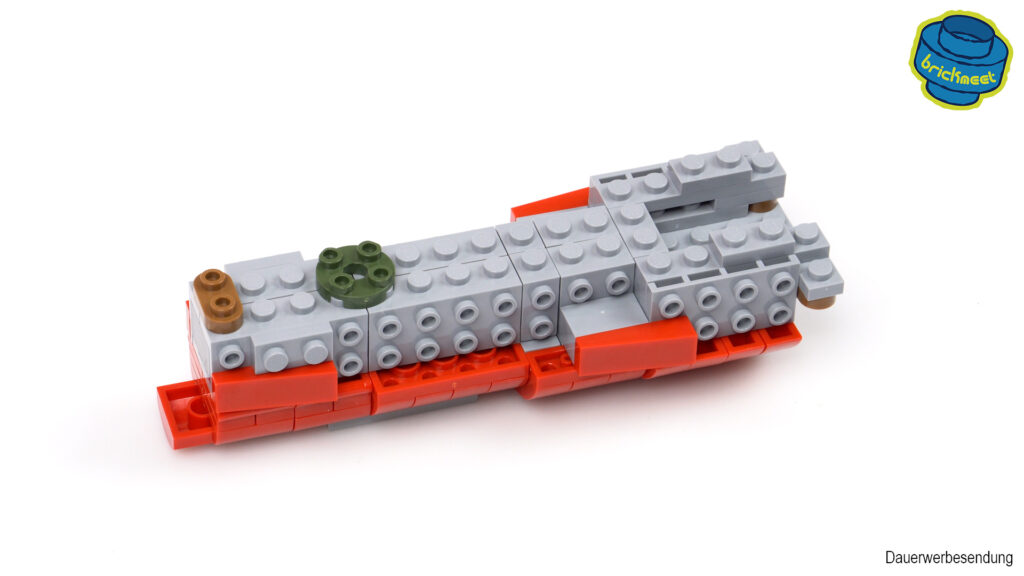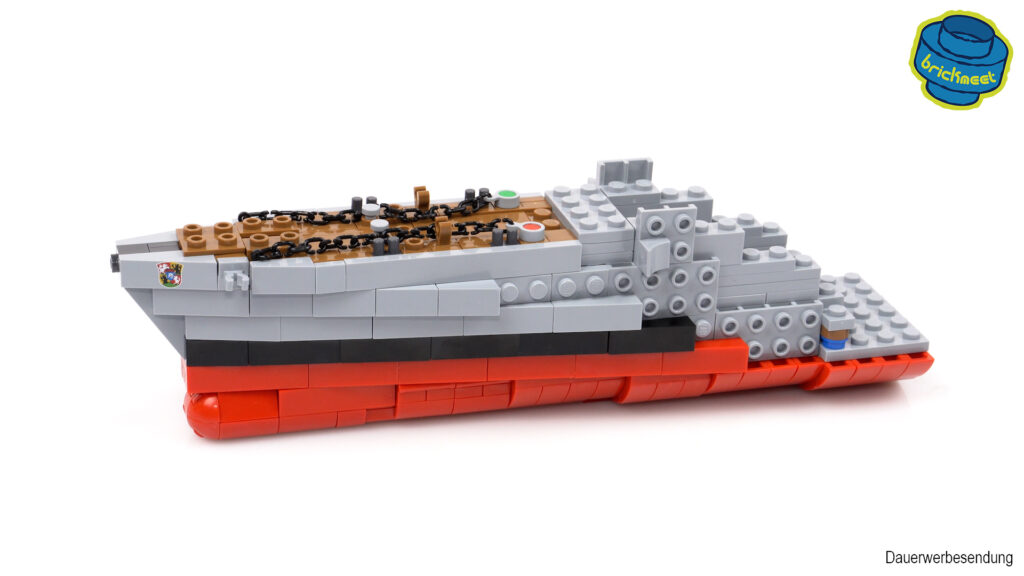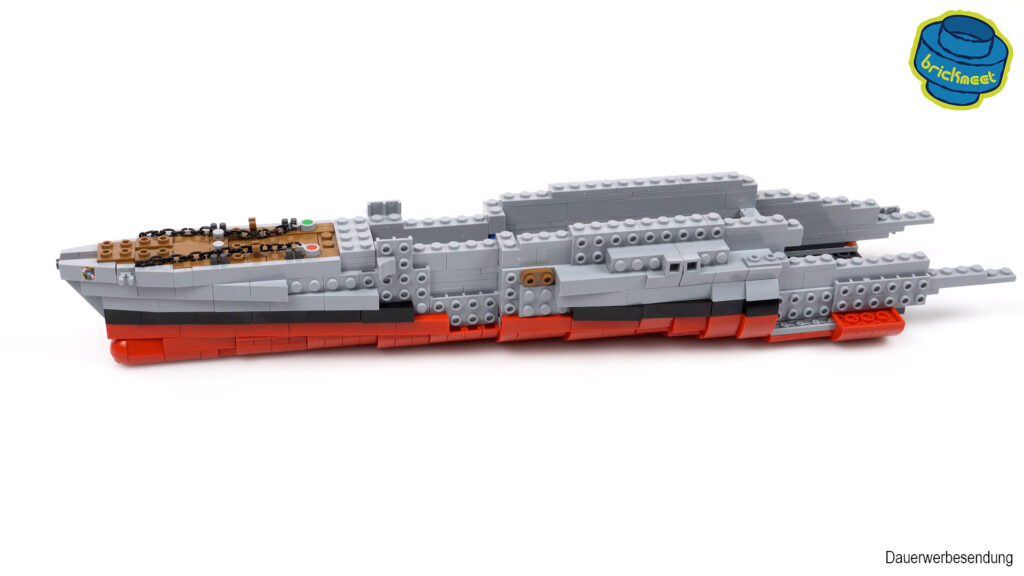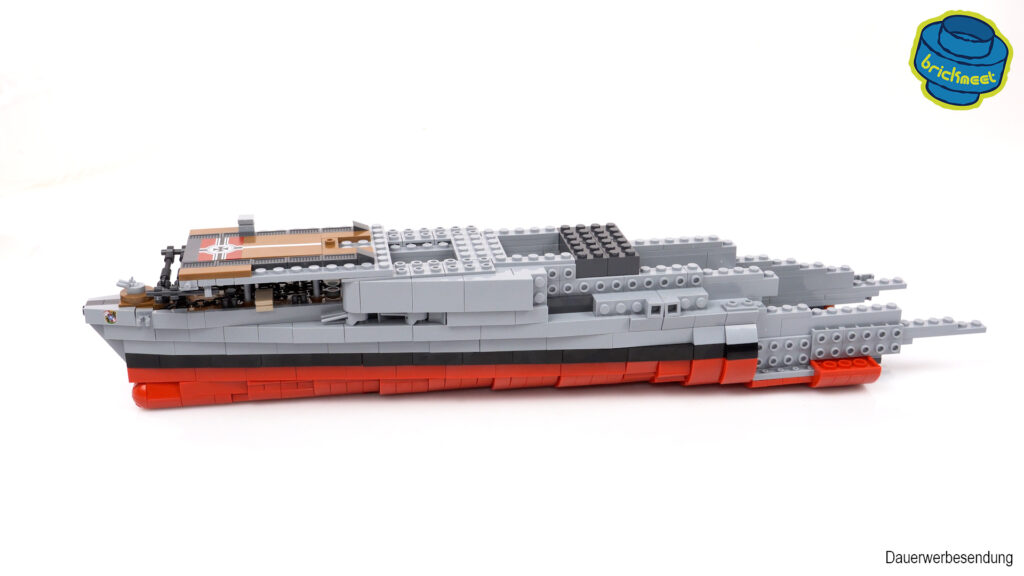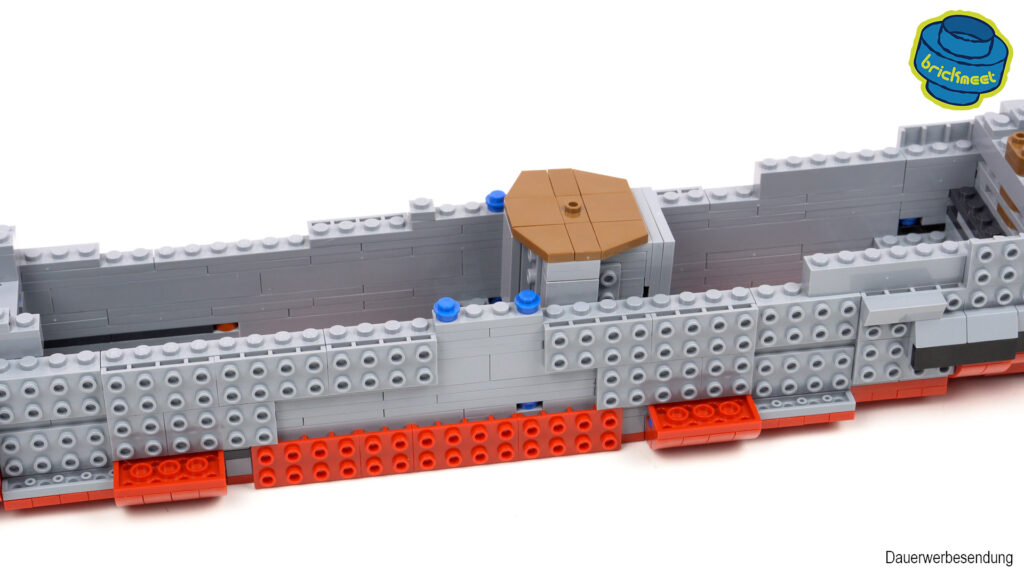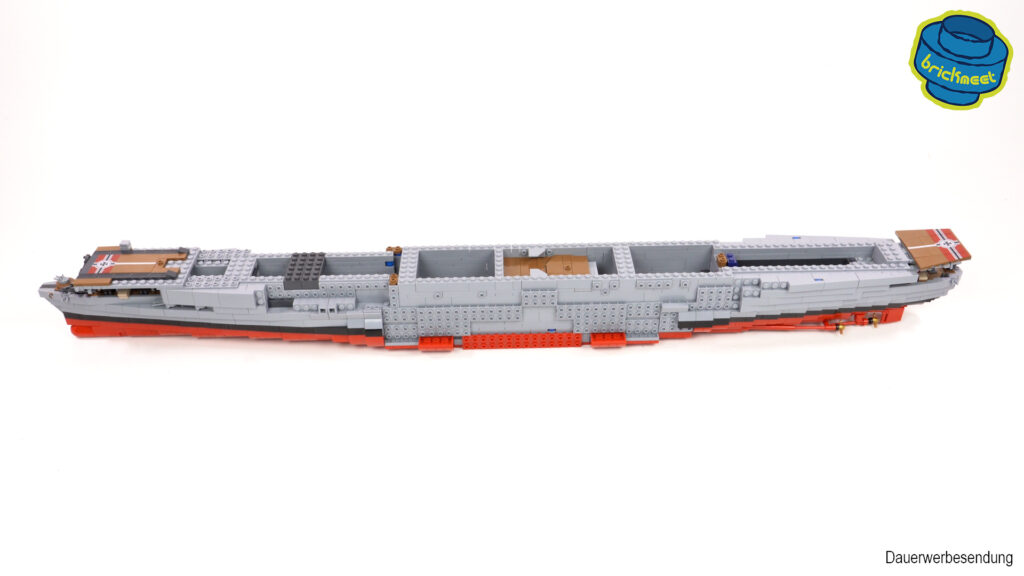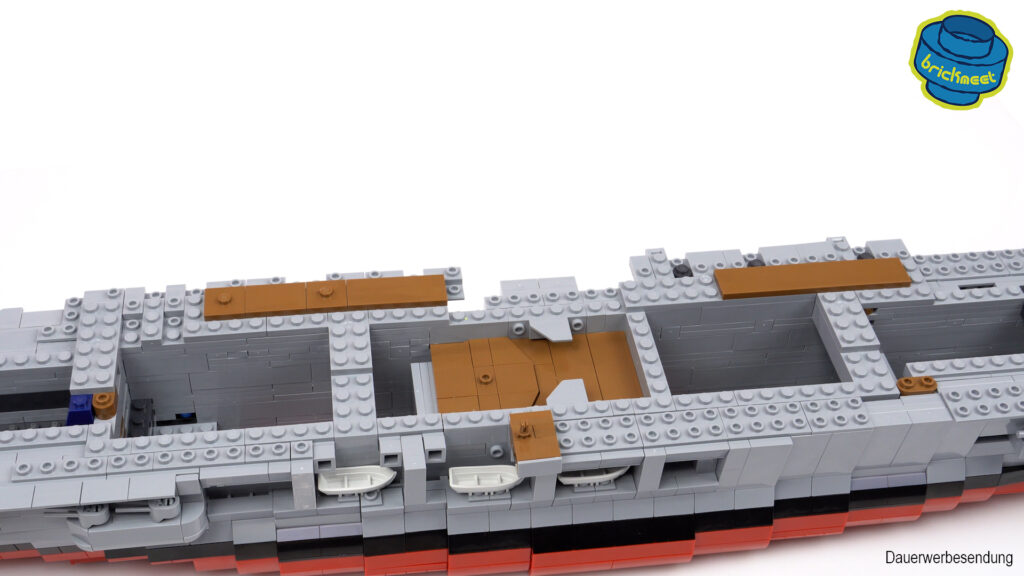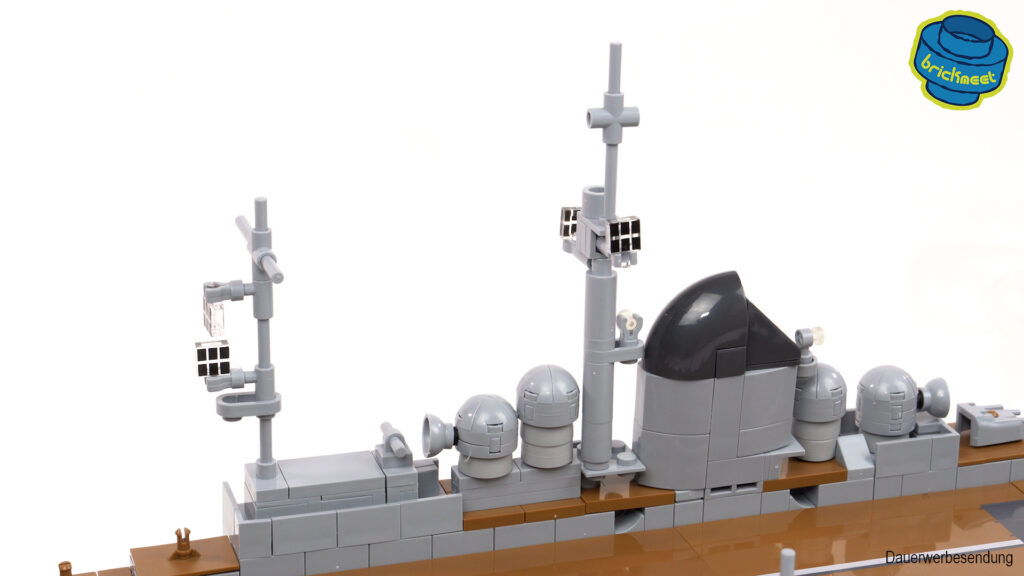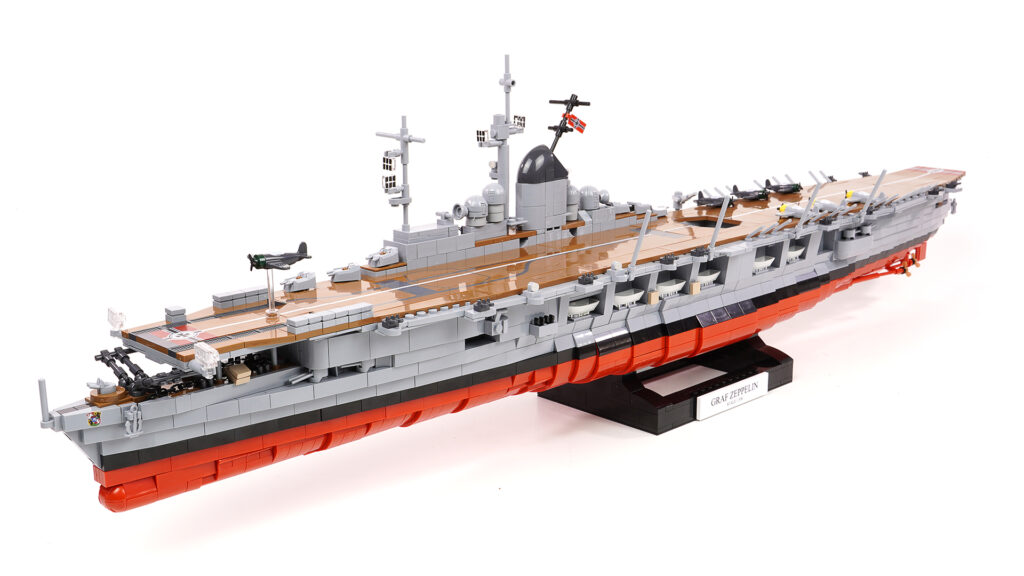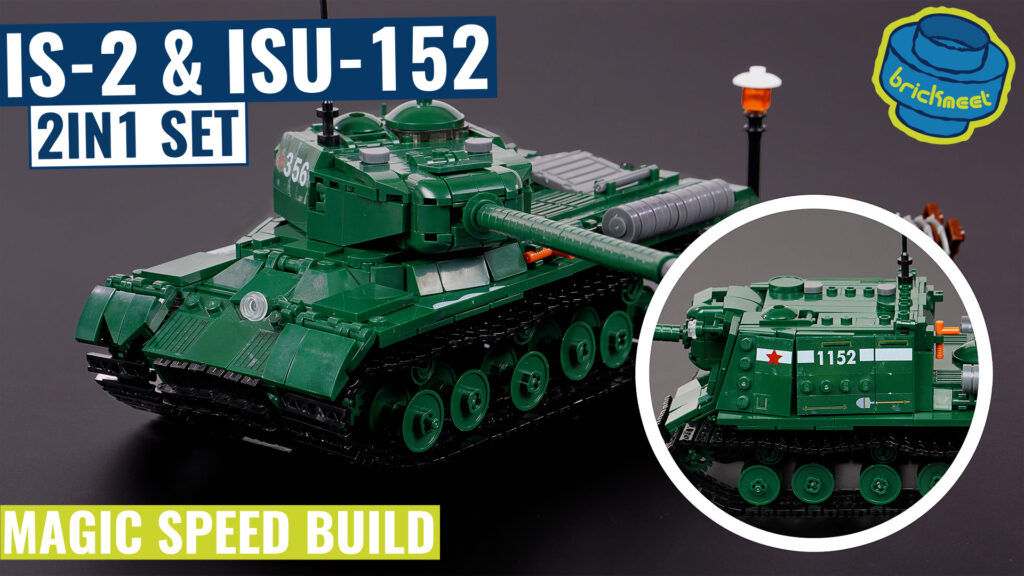 Deutsch
Deutsch
The German aircraft carrier, which only appeared last year, has received a revision. We build the new version and of course look at the differences.
| Hersteller: | COBI |
| Set-Nummer: | 4826 |
| Thema: | Array |
| Erscheinungsjahr: | 2021 |
| Anzahl Teile: | 3136 |
| Anzahl Figuren: | 0 |
| Ab Alter: | 10 |
| Modellmasse: | |
| Maßstab: | |
| Aufbauzeit ca.: | 12 Stunden |
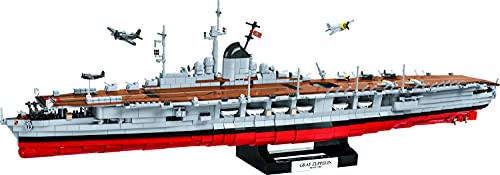
Instructions
COBI has given us 3 instructions for this large model. The 3136 components with their 702 construction steps are divided into these.
Construction
Even a large model starts out very small. Anyone who has ever built a COBI ship will be familiar with this construction method. It starts with the rear end, which is initially given a core from the reversal of the construction direction. Now the fuselage is built and attached separately in several steps. The superstructures also consist of numerous stones to reverse the direction of construction.
Temporarily we turn the stern upside down and take care of the propulsion of the ship. 4 propellers are used for this. The longer rod is a bit fiddly again, as the rod may only be pushed in minimally so that the attachment works at 2 points. Back on the top we build the printed ramp. A filigree frame is used for this, which also had to be built for the predecessor. The next steps are no different from the old version. With a few technical components, a simple elevator is built to transport the aircraft from the flight deck to the hangar.
The bow is built in one piece and contains plenty of stones for reversing the construction direction in all imaginable variations. After all the slopes have been attached from both sides, chain links must be tied. Ultimately, the anchor chain can only be partially seen, as the bow is being built over with part of the flight deck. Part of the middle hull is built separately and only then connected to the bow. There, too, a lot of work is done with reversing the construction direction.
The individual parts can now be connected and we can see the entire length of the ship in front of us. In the next separate construction steps, the entire hull armor will be built. Before we get to the flight deck, the lifeboats are placed. Unfortunately, these keep falling out and you have to remove stones at the end in order to place the boats again. In the end, I fixed a particularly stubborn boat with some photo glue. The flight deck again consists of the same large, printed panels as on the predecessor. Only the color has changed from tan to brown.
The last of the construction phases takes a long time because it consists of countless small parts. Masts are built, small guns are placed and lots of bars are stuck. Something often falls off. In general, it is not easy to touch the model. There are small parts everywhere that fall off. If you plug in a part again, something falls off elsewhere. Here, too, there are again 8 aircraft. However, with my set, COBI included the round plates into which the propeller is inserted in the wrong color. According to the instructions, they should be dark gray, but are dark green. They are also shown in dark green in the parts list. Presumably, therefore, they were packed incorrectly.
Conclusion:
Except for a few small weaknesses, due to the numerous details, the Graf Zeppelin is an excellent model. The 3136 components bring many hours of building fun. Anyone who already owns the predecessor as the World of Warships Edition can confidently do without this new model. Aside from the new color of the flight deck, there are very, very few differences that are only noticeable on closer inspection.

This post is also available in Deutsch.
 (0 ratings)
(0 ratings) 